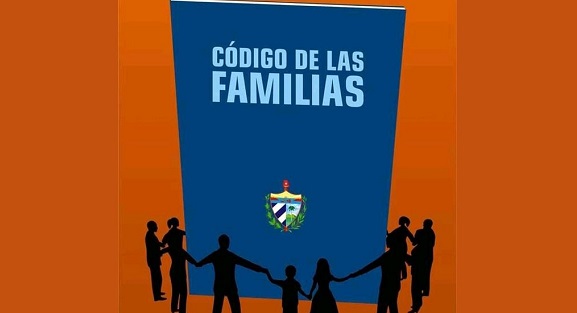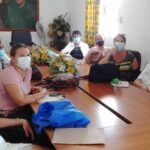Mayabeque, Cuba: The drafting and implementation of new laws continues this year and the Cuban Parliament must close the period with the approval of 27 regulations that in its majority have the Magna Carta, endorsed in 2019, as a paradigm.
The legislation approved, that attracted the most attention and moved the popular debate were the new codes, the Families and the Criminal Codes, which come to strengthen and expand the rights and guarantees of individuals.
Both laws are synchronized with each other and with the constitution itself by enshrining the principles of equality, non-discrimination and the protection of the most vulnerable, the head of the Department of Criminal Procedures in the Mayabeque Provincial Prosecutor’s Office, Eyne Daniel López Vargas said:
“They accepted in their postulates what is related to the Convention on the rights of the child, which has an impact on the penal code. In the Criminal Procedure Law, which is already in force, because the criminal code is one thing and the criminal procedure law is another, that is, how to carry out the process to reach the sanction”.
“This law has an important group of procedural acts that also protect minors, women and the family. For example, special protection is given to young people between the ages of 16 and 18. They cannot go to a police unit, even when they commit a crime, if they are not accompanied by one or both parents or their legal representatives”.
“The statements are taken with the participation of the prosecutor and his defense representative, that is, a lawyer. We have cases in the province that have been worked in this way. The penal code also indicates not to impose detention measures on these minors. Administrative treatments will be applied to them to avoid preventive sanctions, except in those cases that have repeatedly committed several crimes”, the jurist said.
“Even in serious or very serious crimes committed by minors, in that age range, sanctions greater than 20 years of deprivation of liberty cannot be imposed on them, only when it is a joint sanction that could reach up to 30 years.”
Both the Family Code and the new criminal legislation refer to aggravating circumstances that have to do with gender violence and family violence, López Vargas stressed.
The sanctioning frameworks can be raised to higher limits when the act is committed taking advantage of the fact that the person is in a vulnerable situation, and it is another element in which both codes converge, he pointed out.
The prohibition of approaching the victims, their relatives or close friends, better known in the legislation of other countries as a restraining order, is a novelty in terms of precautionary measures in procedural law, he explained.
“This seeks precisely to protect the victim and is something that did not exist in the previous law. In fact, it has already prevailed in some cases.”
The meeting points between the family code and the criminal code are evident in regard to the death penalty. There is a political will to abolish the death penalty. In this new code, the crime of rape of women and pedophilia with violence is unified into a single crime called sexual assault. Those crimes previously carried the death penalty. Nor will it be imposed in cases of corruption of minors or robbery with violence or intimidation of people.
However, life imprisonment was added to these offenses, which is what is popularly called life imprisonment.
He pointed out that although, when the death penalty has not been carried out in recent years, the tendency is to decrease the crimes in which this measure is imposed.
There is still a family of crimes that has the death penalty incorporated and they are those that have to do with an act of terrorism and some very serious complex transgressions, such as those that violate the constitutional order and international drug trafficking.
The new Penal Code will enter into force 90 days after its publication in the Official Gazette, and regarding the Family Code, the drafting commission has already concluded version number 25 of this rule, enriched with the contributions of the popular consultations.
Lili Teresa Toyo Bulnes, Chief Prosecutor of the Family Protection and Jurisdictional Affairs Department at the Mayabeque Provincial Prosecutor’s Office, said that the referendum process is expected in September, hence we must conclude 2022 with a new Family Code, she explained.
The laws mentioned above by themselves will not transform reality, he reflected and offered some keys to make them viable: We are obliged to specialize all members of the legal sector and other actors in society, such as the prevention group at all levels, Public Health, Ministry of Labor, Ministry of the Interior, Education, among others, in order to provide the law with an effective practice. We have to raise awareness and foster a culture of peace and conciliatory spirit in society.





